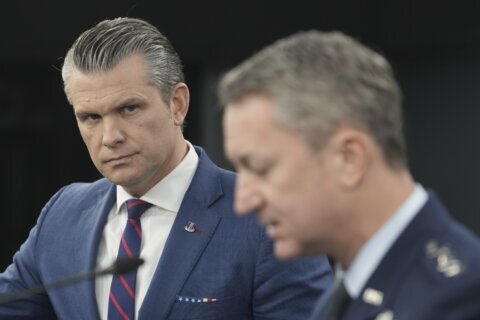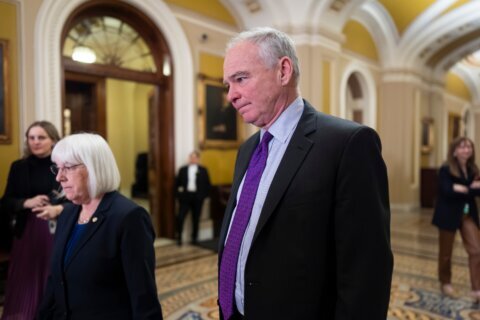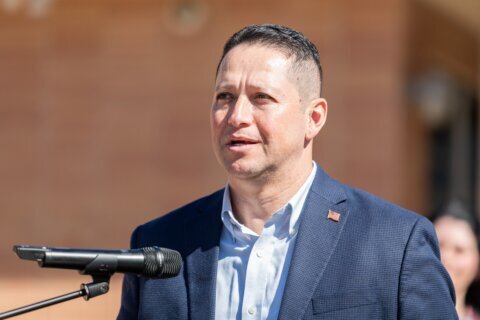WASHINGTON —Sen. Ben Cardin has introduced a bill that would prevent allocating federal funds toward any kind of military parade or exhibition in the nation’s capital.
The Maryland Democrat’s measure is in response to President Donald Trump’s interest in having a massive military display similar to one he witnessed in person last year during France’s Bastille Day celebration in Paris.
“We don’t need to flex our muscles to showcase our military hardware,” Cardin said in a statement. “Our brave military men and women flex their might around the world every day on behalf of our nation.”
The Maryland lawmaker introduced a similar amendment last year as a part of the fiscal 2018 defense authorization bill, but the prohibition was not included in the final version of the legislation.
So far, Cardin’s bill has collected three Democratic cosponsors: Sens. Chris Van Hollen of Maryland, Tammy Duckworth of Illinois and Richard Blumenthal of Connecticut.
Rep. Brad Schneider, a Democrat representing Illinois’ 10th District, introduced similar legislation in the House on Thursday. “The Preparedness Before Parades Act” would prevent the president from putting on a military parade if the event would have a negative impact on the military’s readiness.
However, it isn’t just Democrats who seem to be against the president’s parade plan.
In an informal poll by the Military Times, readers were asked if there should be a parade showcasing troops and military equipment in D.C. An overwhelming 89 percent of readers responded no, saying the parade was a waste of money and military resources.
According to the Defense Department, Trump already has asked the Pentagon to come up with possible dates for the event. In response, several lawmakers have expressed their disapproval of the idea, comparing it to military displays that such nations as North Korea and the Soviet Union have put on in the past.
Instead of spending federal funds on a parade, Cardin argued, the money could be better spent on protecting the troops.
“First and foremost, diverting millions of dollars away from training our troops and supporting our military — especially at a time when Congress is struggling to pass annual appropriations — should be enough to kill this idea,” Cardin said. “We need every dollar possible to maintain the readiness and safety of our troops.”
The last comparable military parade in the United States was held in 1991 under President George H.W. Bush as a national celebration after the Gulf War. At the time, it cost $12 million to showcase 80 pieces of military machinery.
“We all honor the brave men and women of our military, but there are much more effective ways of achieving this than wasting millions of dollars we could better spend on our troops,” Cardin said.







